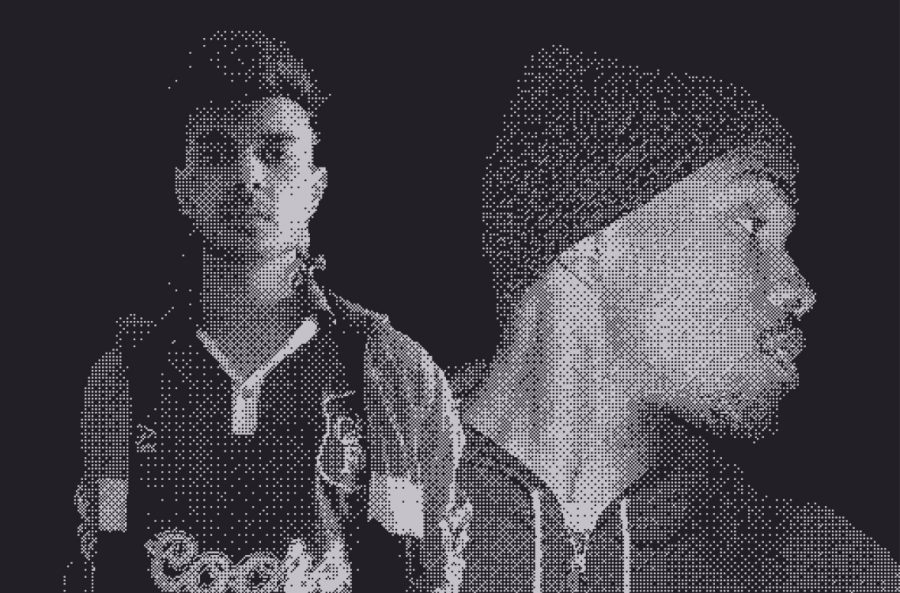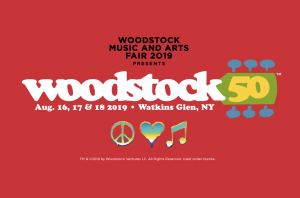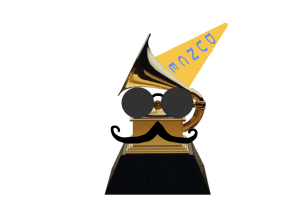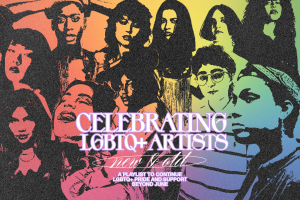What Do Artists Owe to Their Fans?
Poor reception of Frank Ocean’s performance at Coachella demonstrates the harms in the capitalization of the music industry
May 8, 2023
The Coachella Valley Arts and Music Festival in Indio, California, has been a contemporary American cultural staple since its inception in 1999. This year’s lineup was set to be one of the best: After a forced two-year hiatus due to safety precautions throughout the COVID-19 pandemic, the festival announced that Frank Ocean would finally be headlining the final weekend of Coachella.
Since the release of his second studio album, “Blond,” in 2016, Frank Ocean has veered away from the music industry and shifted his focus to the fashion industry. Fans of Ocean’s music have aired their disappointments with the artist on social media time and time again, especially when Ocean would tease new releases, only for them to be fashion-related and not music. The announcement that Ocean was playing Coachella, however, seemed to be indispensable proof that he was not done with his music career just yet.
Many fans were willing to spend large sums of money to see Ocean’s first live show in years: Tickets to Coachella averaged around $600 for a weekend pass this year, not including transportation and lodging near the festival. Ocean’s performance was highly anticipated by both fans at Coachella and fans at home tuning in to a livestream broadcast of the festival.
The explanations, however, could not quell the emotions of Ocean’s fans: They were disappointed and angry at the artist.
The first disappointment of Ocean’s comeback performance was the announcement that the artist would not livestream his set on YouTube. Coachella traditionally keeps a running broadcast for each stage at the festival, allowing fans worldwide who could not afford tickets or make the trip to experience the festival virtually. Canceling the livestream for Ocean’s performance meant it was essentially closed off to only those who could afford $600 tickets in addition to transportation and lodging costs.
According to attendees of the festival, the fiasco only escalated from there. Ocean was late to his set, played a few reworked versions of his older songs, and promptly left. His performance only lasted about an hour. Viewers at home were able to watch — in very poor quality — through a social media livestream set up by a fan in the crowd. The general consensus among viewers of the performance — both in-person and at home — was that Ocean’s show was disappointing and not worth the exorbitant price of Coachella tickets.
After the letdown, explanations began to arise for Ocean’s lackluster performance. Some said that he had broken his ankle and had to abandon his original concert plans, which allegedly included featuring ice skaters on an ice rink built onstage. Others claimed that the artist did not want to headline the second weekend of Coachella but was forced to follow through on a contract he had signed years ago, before the COVID-19 pandemic. Another theory emerged detailing that Ocean was grieving the loss of his little brother Ryan Breaux, who died in a car crash in 2020, as demonstrated by his emotional tribute regarding his late brother’s love for Coachella during his set. The explanations, however, could not quell the emotions of Ocean’s fans: They were disappointed and angry at the artist.
This raises an interesting question: Does Ocean actually owe something to his fans? Or, more generally, do any musical artists owe anything to their fans?
Ocean ultimately pulled out of the festival after the disastrous performance, citing a leg injury. His headlining slot at Coachella’s second weekend was filled in by Blink-182, who originally appeared as surprise guests during the festival’s first weekend.
The language surrounding Ocean’s failed performance was largely economic. Fans spoke about the show as though it were a product: It was unsatisfactory, and they expected remuneration for their loss. Fans claimed that Ocean owed a good performance to his fans due to the amount of money they spent on Coachella, and they wanted that money back.
This raises an interesting question: Does Ocean actually owe something to his fans? Or, more generally, do any musical artists owe anything to their fans?
Fans’ protests against Ocean are expressive of the commodification of art, a characteristic of late-stage capitalism — a term that touches on the consumption of immaterial dimensions, such as art, in addition to material products. If an artist’s performance is deemed a product, it is only natural that it is spoken about in terms of satisfaction and payment in exchange for services. Viewers of performances think of themselves as customers rather than participants in an artistic experience.
Is this an adequate view of consuming art? Another comeback act at Coachella 2023, Jai Paul, offers a contrast to Ocean’s fiasco.
Paul was a rising star in the music industry when his unfinished debut album was leaked on the internet in 2013. In response, Paul dropped off the face of the earth. Despite the buzz surrounding him as an emerging artist, he refused to work on new music and made every effort to erase any trace of the leaked tracks.
After a few years, Paul eventually uploaded his still-unfinished tracks on streaming platforms, finally taking ownership of his music and allowing himself to profit monetarily off of his previously stolen cuts. Other than the surprise release of two singles in 2016, he had hardly been heard from until news broke that he would be performing at Coachella 2023.
While this is a disappointment, his individual choices concerning his art should be respected. Artists do not owe their fans anything, but fans, at the very least, owe their favorite artists empathy.
Fans were ecstatic that they would finally be able to hear an artist who they had long assumed had quit the music industry. Paul’s comeback performance was met with acclaim and excitement for what was to come for the artist. Fans of his were genuinely happy to see him on stage for the first time, moving past the hardships he faced in entering the music industry and reigniting a career that could have been. Paul’s fans did not demand a return from him: Paul returned on his own terms when he was ready to start releasing music again.
The public receptions of Paul and Ocean’s comeback announcements were starkly different, despite the two artists’ similar positions as returning pioneers of contemporary popular music. The difference can be explained by discrepancies in the two artists’ levels of notoriety and resulting position in the music industry.
Although Paul was immediately critically acclaimed upon his entrance into the music world, he has not reached anything close to the level of global fame that Ocean has achieved. Ocean has a large and dedicated fan base, fomented by his abundant catalog of released music and reputation as a titan of pop music. Paul, though he has a niche, is widely unknown by most casual listeners of music.
As artists grow more significant in popular culture, they quickly become more and more profitable. This makes them more of a focal feature in the music industry, which commodifies acts in order to make the maximum amount of profit.
The treatment of music as a commodity, rather than an art, also extends to fans. Fans begin to conceptualize their relationship with the artist as a transactional one, instead of a relationship rooted in emotional connection through art. Fame robs artists of the personal aspects of their performances; fans feel that they have the right to demand more music and better performances from their favorite artists because they’re the ones who are supporting and allowing them to make money off their art.
There is no real difference between Paul and Ocean. Both are artists who have left the music industry due to personal reasons and sought to return, in some capacity, at Coachella 2023. However, the anticipation of both artists’ performances was starkly different due to their positions in the music industry hierarchy. Since Paul is relatively unknown, his performance was low-stakes and ended up reaping rewards and high praises. Had Paul’s performance gone wrong, similarly to Ocean’s, he likely would have been met with more understanding. Considering Ocean is a household name, his fans expected a much more impressive concert from him and had little empathy for him when it did not go according to plan. The emotional weight that most fans put on Ocean’s return ultimately culminated in great disappointment.
Art is a personal experience and cannot be quantified by ticket prices. Although it is understandable that fans are let down by what transpired during Coachella, Ocean does not owe anything to his fans. Just as Paul chose to come back to music at Coachella, Ocean made a personal decision to perform at Coachella and later pull out when he realized he would not be able to do justice for his fans. While this is a disappointment, his individual choices concerning his art should be respected. Artists do not owe their fans anything, but fans, at the very least, owe their favorite artists empathy.















Jaden • May 15, 2023 at 1:00 pm
What a crock this article is. What I see is a person of privilege taking advantage of people who work hard to pay for a coachella ticket. Not everyone is wealthy that goes. If he wanted to pull out last minute and do something that you find to be a great artistic experience, do it on your own show. Don’t do it at a festival where people have spent thousands of dollars for tickets, transportation, food and lodging. If it was a local show, there wouldn’t have been that loss of expenses and people would’ve gotten reimbursed for their concert tickets.
You say we should have empathy for someone of wealth who took our money and didn’t have the common decency to apologize. Maybe you like being taken advantage of. Maybe you’re part of the people of England who had no problem with their tax dollars going to a coronation while most tax payers can’t afford to live. This situation is no better than Donald Trump robbing America for so long with no consequences. I don’t know, maybe you grew up wealthy. I know I spent close to $2500 on coachella and I make less than $100,000 a year.
He’s been too wealthy for too long and doesn’t have respect for us who spend our hard earned money and those who were frying in the sun waiting for him. So out of touch. An apology would’ve been great to acknowledge the people at the bottom of the caste system that he just swindled. Just a quick “My bad. I’m sorry I didn’t want this show to go that way”.
You writers put this man on an altar when his music is really subpar. Most of the headliners this year were not on the level of previous years if you look at the lineups.
We don’t pay thousands of dollars for an obtuse artistic experience. Doja Cat, Adele, Billie Eilish, The Weeknd, AC/DC, Beyonce. Coachella evolved into A list performer’s headlining amazing performances that you would expect from that caliber. Save the experimental stuff for when you’re headlining your own arena tour when the people supporting you have less to lose from their pockets.
This experience might’ve been some people spending their last, or people with health issues having their first round of group fun since the pandemic. It seems like he only thinks about himself, and as a human being (leave the artist at the door), that’s a bad way to be at his age. You’re 35 years old! Grow up and take some accountability. That look is more forgivable out of someone in their teens or 20s. He knows what he did. With those ice skaters time, with our time and money. And why are you doing anything where you can end up injured before a festival that’s this expensive compared to if he headlined a local stadium or arena tour. I’m sure he shouldn’t have been doing things that could possibly injure himself for insurance reasons. SMH at anyone defending him and saying he deserves empathy. We’re all humans. It’s a two way street that he’s not above.